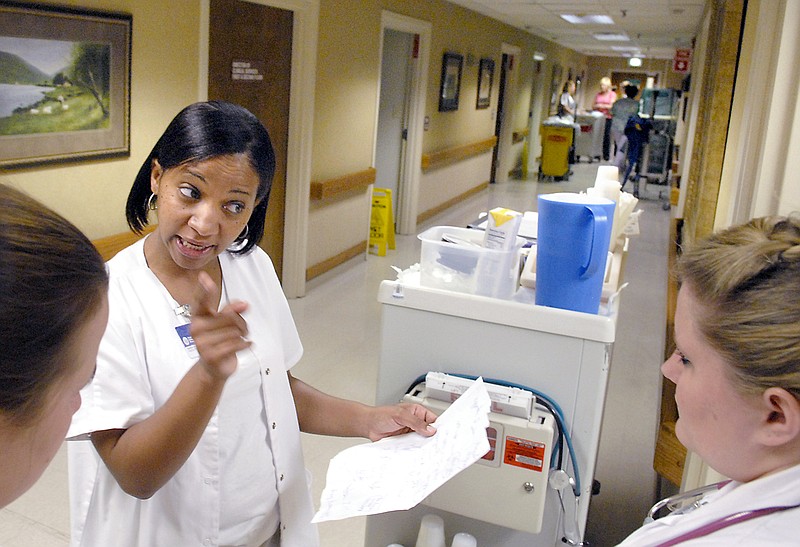Local nursing professor Dr. Martina Harris said she's found her research niche in work that addresses deeply entrenched health disparities among minorities.
"It's become a ministry to me," said Dr. Harris, a registered nurse and professor at the University of Tennessee at Chattanooga.
Last summer, Dr. Harris received a one-year, $50,000 grant from the Meharry Medical College in Nashville to create a new role of "community navigator" at the Urban League of Greater Chattanooga.
The navigator, Pecola Lee, works alongside Dr. Harris to connect minority residents in Hamilton County with local health care resources such as the Southside and Dodson Avenue Community Health Centers.
They reach underserved communities through churches, barber shops and even going door-to-door, Dr. Harris said.
Among minority populations, factors such as uninsured and low socioeconomic status and a distrust of the health care system are barriers to early and ongoing medical care, she said.
About 37 percent of blacks in the city of Chattanooga under the age of 18 live below the poverty level, her grant proposal said.
By its end in June, the pilot project is on track to work with 160 black men and women, screening for diabetes, hypertension and cancer and connecting the patients with follow-up care, Dr. Harris said.
"I ask them, 'Are there barriers that prevent you from going to the physician? You're 46 years old, what are the barriers that have prevented you from getting a baseline mammogram?'" she said. "I hope it make a long-term difference. The word of mouth is getting out."
James McKissic, chief operating officer at the Urban League, said the program has reached many in the community who have a shocking level of unmet health care needs.
There are "even people who have tried to set their own broken bones," he said. "It's incredible what people are going through."
Delores Carter, 58, heard about the community navigator program from a friend. She felt a lump in her breast, but she was uninsured and unsure where to turn for medical help.
Ms. Lee and Dr. Harris helped get her a mammogram which revealed Stage 3 breast cancer in February. She underwent a mastectomy of her right breast last month and is getting radiation therapy.
Ms. Carter said Dr. Harris' efforts are addressing a very real health care problem among underserved minorities in the region.
"It's a very important project and she's dedicated to it," Ms. Carter said.
DISPARITY BY RACE
Racial health disparities are widespread on both a local and national level. In Hamilton County, blacks are twice as likely as whites to be diabetic and twice as likely to be uninsured, according to the Ochs Center for Metropolitan Studies.
Although white women have a higher incidence of cancer among all races, black women are the most likely to die from cancer, according to the National Cancer Institute.
Black men have a higher risk of dying from prostate cancer.
Lack of health care coverage, late diagnosis and low socioeconomic status contribute to these persistent disparities, doctors say.
